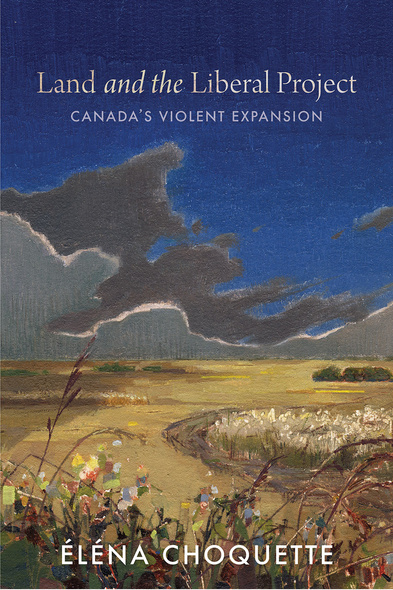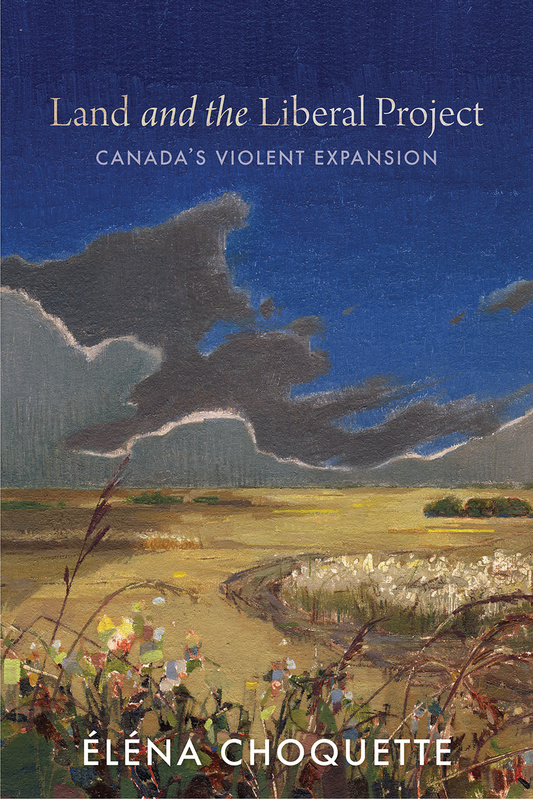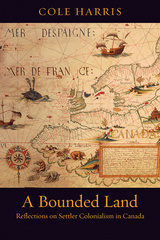
In 1867, Canada was a small country flanking the St. Lawrence River and Great Lakes, but within a few years its claims to sovereignty spanned the continent. With Confederation had come the vaunting ambition to create an empire from sea to sea. How did Canada lay claim to so much land so quickly?
Land and the Liberal Project examines the political, legal, and rhetorical tactics deployed by Canadian officialdom in the cause of nation making, from the first articulation of expansionism in the 1857 Gradual Civilization Act to the consolidation of authority over the prairies following the North-West Resistance of 1885. Drawing on numerous archival sources, Éléna Choquette contends that although the dominion purported to favour a gentle absorption of Indigenous lands through constitutionalism, administration, and law, it resorted to police repression and military force in the face of Indigenous resistance. She investigates the liberal concept that underpinned land appropriation and legitimized violence: Indigenous territory and people were to be “improved,” the former by agrarian capitalism, the latter by so-called protection and enforced schooling.
By rethinking this tainted approach to building a transcontinental state, Choquette’s clear-eyed exposé of the Canadian expansionist project offers new ways to understand colonization.
This challenge to nationalistic narratives will find a keen audience among scholars and students of political science and political theory, Canadian history, and Indigenous studies.
The book as a whole is a model example of settler studies working toward decolonization.
Land and the Liberal Project is an excellent and much-needed accounting of colonialism during the period surrounding Confederation. It challenges nationalistic narratives regarding the formation of Canada.
Éléna Choquette challenges the collective perception Canada has of itself as a peaceable kingdom. Her scholarship sets a new standard on the political history of the Canadian Northwest.
Éléna Choquette is an associate professor in the Department of Social Sciences at the Université du Québec en Outaouais. She has held a postdoctoral fellowship at Cambridge University and has been published in the Canadian Journal of Political Science, Settler Colonial Studies, and the Journal of Political Ideologies.
Introduction: Expanding Canada
1 Birthing Canada, 1857–67
2 Founding Manitoba, 1867–70
3 Ordering, Settling, and Policing the Northwest, 1871–76
4 Canadianizing the Indigenous Peoples, 1876–84
5 Defeating and Eliminating Indigeneity, 1884–85
Conclusion: The Peaceable Kingdom Canadians Reign over Today
Notes; References; Index









